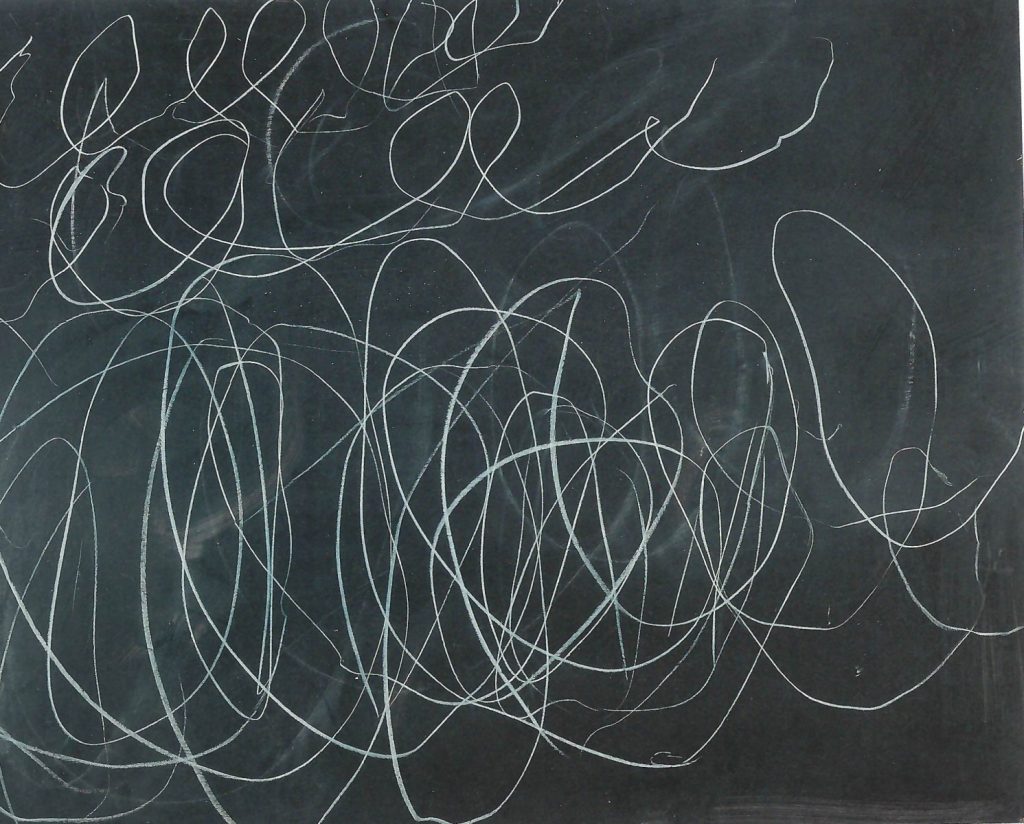
Untitled, 1970. Oil paint, wax crayon. 27 3/4 x 39 3/8 inches
Collection Cy Twombly Foundation. © Cy Twombly Foundation
This evening, the unknown waves
its wand, and a beam of light disappears
into the sky’s black hat.
The moon has never known its true home.
The stars do not remember when they began their journey.
Out of that forgetting,
they begin their own making.
Just like us.
Soon the sun will take off its cape,
and open a door to a place that is not there.
Out of that absence,
the questions:
What black bones hang above the unseen?
What name does the fire give to flame?
What burns through existence to endlessness?
We are not here long enough to believe in anything but language,
and yet we know what awaits us is silence—
somehow always rising above the darkness
into darkness,
always drawn to our own obscurity.
Future self,
I think of you arriving at our ending—
last line on the last page—
the trace within the vanishing,
the final sleight of hand in which everything disappears.
Remember: the unseen is never truly empty.
Despite erasure,
the canvas never blank.
from NER 40.4 (2019)
Subscribe today!